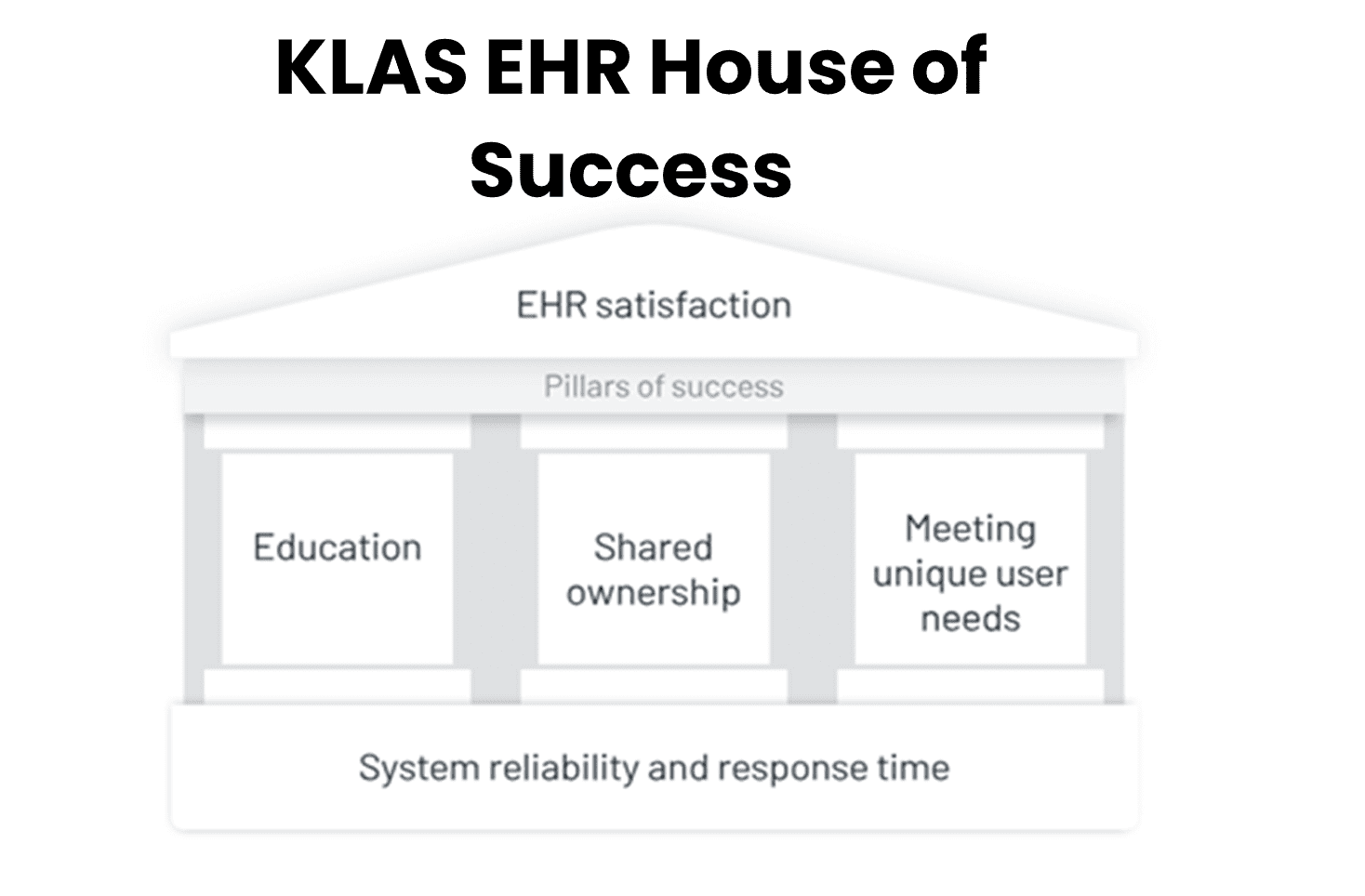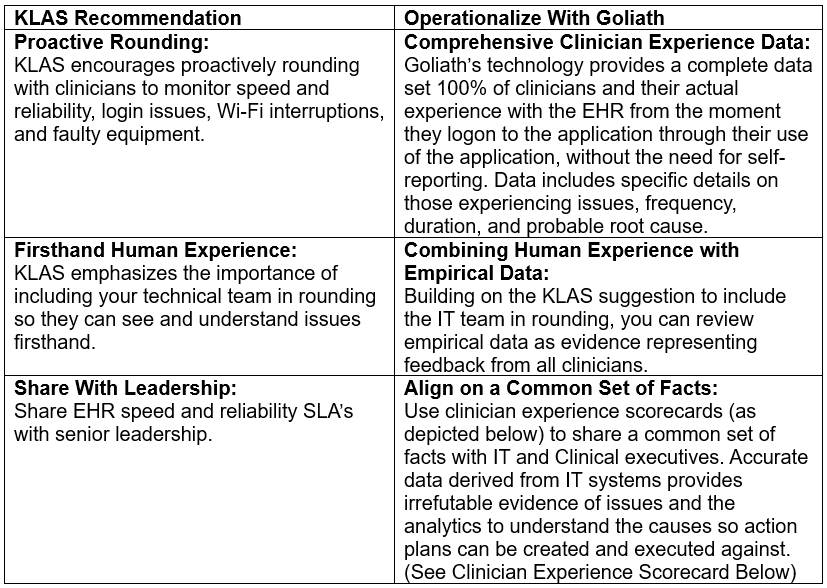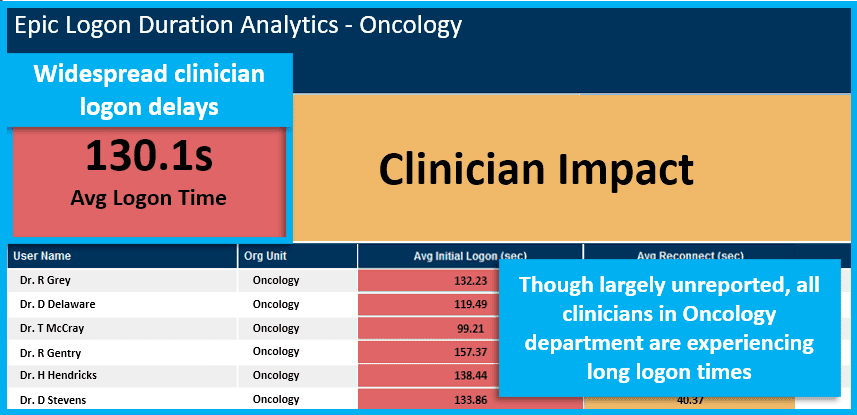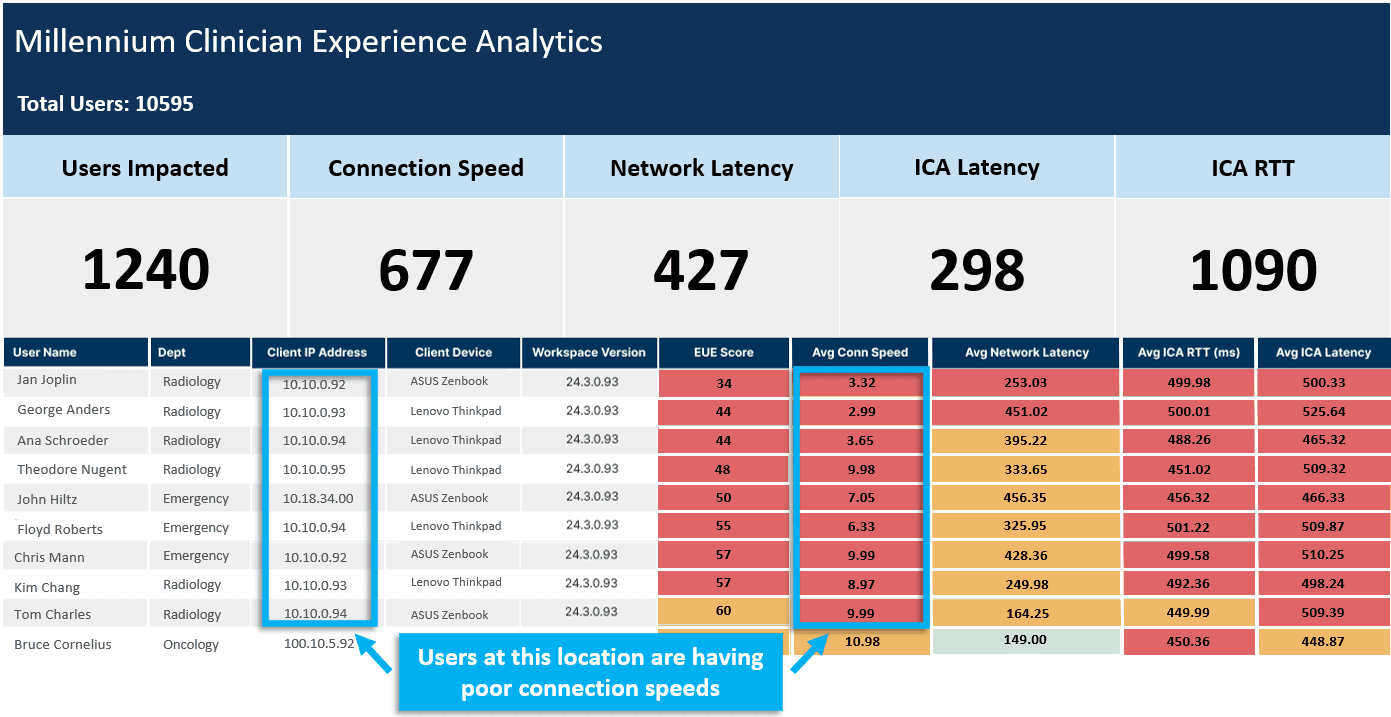Convert Insight to Action: Operationalizing KLAS EHR Speed and Reliability Recommendations
Convert Insight to Action: Operationalizing KLAS EHR Speed and Reliability Recommendations
By Ryan Oliver, SVP of Healthcare Solutions at Goliath Technologies
KLAS Research has surveyed over 500,000 clinicians from 300+ Healthcare Organizations to determine what drives a positive clinician experience with the EHR.
From this data set came the KLAS EHR house of success, a framework that emphasizes a strong foundation of EHR speed and reliability. The pillars of success focus on training, shared ownership, and personalization. Efforts to optimize the EHR in these areas will not yield the desired results until the foundation of speed and reliability is in place.
System Speed and Reliability issues are those that impede a clinician when they are attempting to use the EHR application. These problems often manifest as logon slowness, latency, and overall lack of responsiveness. These issues are especially frustrating and critical when they occur in a patient setting.
KLAS Research survey measurements provide health systems with industry benchmarks as well as deep insights through personal contact and feedback. The measurement of human interaction and self-reporting provide essential data used to plan strategic optimization opportunities that improve the three pillars of success. This critical human feedback provides personal descriptions of challenges that enable KLAS Research to pinpoint the issues and corresponding remediation actions to improve clinician experience. Years of data are available that prove the impact of KLAS measurements.
When it comes to the foundational elements of speed and reliability, the challenge is the user can only describe their lived experiences and identify at a high level that something is wrong. Unfortunately, however, speed and reliability issues are inherently technical. As a result, individuals can only describe how the problem presents itself, but they don’t have the technical knowledge to even attempt a diagnosis of the underlying cause. Addressing problems with system speed and reliability requires purpose-built technology capable of delivering actionable insights into the underlying causes, enabling effective remediation.
Goliath is the only KLAS-rated solution specifically focused on improving the foundational elements of EHR speed and reliability. While the KLAS Arch Collaborative survey provides valuable clinician-reported insights, Goliath enhances this by delivering objective, technology-driven data. Our platform automatically identifies the exact number of clinicians affected by performance issues, along with the duration, frequency, and root causes, without relying on self-reporting.
This distinction is critical: because this data is captured directly from the clinician’s digital interaction with the EHR, it reflects the actual experience of all users, resulting in a complete and unbiased dataset. On-demand reporting from Goliath provides a shared set of concrete facts that both clinical and IT teams can trust. With clear evidence of problems, their scope, and underlying causes, teams can align priorities, create targeted action plans, and execute them effectively.
In a recent KLAS report on EHR Reliability & System Speed, Jenifer Gordon outlines four key phases for optimizing EHR performance. Goliath complements this framework by providing empirical data and automating performance insights so organizations can take deliberate and precise actions to improve issues that impact clinicians and ultimately patient care.
This blog is the first of three where we will examine the three best practices phases outlined in the KLAS report.
Phase 1 – KLAS Recommends Proactive Monitoring:
We have been discussing using empirical data to complement and complete the KLAS Measurement/findings. Here are two examples from different health systems. One that uses Epic Hyperdrive and the other Oracle Health EHR (Millennium).
First, you see in example 1 below, a health system using Epic Hyperdrive. They received some complaints related to logon issues. Unsurprisingly, their KLAS measurement results suggested they work on improving speed and reliability. Goliath’s technology was deployed, uncovering widespread issues with logon delays, many of which had gone unreported. The scorecard also showed that clinicians in the Oncology department were experiencing the most severe problems. A quick analysis was done within the Goliath data isolating the root cause, allowing IT to quickly resolve the problem.
Example 1: Clinician EHR Logon Analytics
In example 2 below, this health system is using Oracle Health EHR. Their KLAS measurement results showed poor system speed and reliability issues. They utilized Goliath’s Clinician EHR Experience Analytics to run the following report. What they found was ~12% of their clinicians were experiencing speed and reliability issues, however, 9 of the 1240 impacted clinicians were experiencing issues so severe it impacted their ability to deliver patient care. They now had access to data not previously available that identified specifically which clinicians were impacted, the frequency and duration of the issue, and the root cause. This data allowed them to immediately target their remediation efforts on the location and clinicians with the most severe impact, drastically reducing mean time to remediation and potential patient impact.
Example 2: Clinician EHR Experience Analytics
If you are having end user experience issues with your clinical or business applications reach out and let’s discuss. We find and fix very specific issues and in a discovery conversation we will let you know if we can assist. If the issues you are experiencing are outside our purview, we will share that as well.
If you want to learn more, check out our EHR Speed & Reliability Improvement Program.
Next Up: Automating Root Cause Analysis for EHR Performance Issues
In Phase 2, KLAS recommends performing a comprehensive root cause analysis. Our next blog will show how to automate RCA using embedded intelligence that pinpoints the exact source of performance disruptions. This accelerates resolution times and drives sustained improvements in clinician experience.




